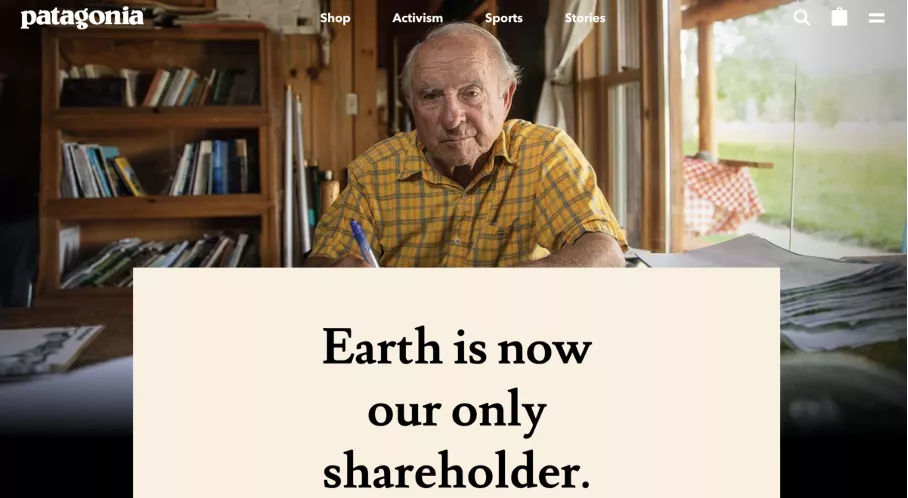
Brands have buried us over the past decades with a deafening flood of stories promising us happiness, success, and fulfillment. But a new way of telling brand stories is emerging in marketing and communication. Instead of emotionally dressing up a brand, which may or may not match the real experience of the product, companies have started using their authenticity.
In the book "What Consumers Really Want" by Gilmore and Pine (known for explaining the experience economy), the authors explain the latest consumer sensitivity that revolves around authenticity:
'In a world of increasingly planned, sensational-oriented staged experiences - a world that is becoming increasingly unreal - the question of whether customers want to buy something increasingly depends on how real the offer is in their eyes. Businesses now revolve around authenticity, being original, sincere, honest, and authentic. '
Patagonia
We see this new consumer sensitivity in the stories of companies like Patagonia, who use truth as a driving force in creating their brand stories. These companies use truth to achieve their competitive advantage. To do this, they must be radically transparent about production methods, service, and for example their impact on the environment. These new stories about their corporate ethos, their way of standing in the world, and their philosophy of life replace the endlessly chewed stories of success, happiness, and prosperity.
'When consumers want authenticity, steering customer perception of authenticity becomes the new primary source of competitive advantage - the new business imperative.' - Gilmore and Pine
The shift to authenticity means that people buy a product or service for the meaning and story that the brand tells. We connect our self-image, our identity, to the values and beliefs of these brands. And if you do that, then you want to be sure that you are connecting to something real.
'Both consumers and B2B customers now buy based on the extent to which those products fit their own self-image. What they buy must reflect who they are and who they want to be in relation to how they see the world - it's about rapid judgments about what is 'real' and 'fake.' - Gilmore and Pine
Consumers want to be part of the story
Brands that use authenticity in their stories create meaning in the world. By purchasing their products and services as consumers, we become part of their story. Stories, for example, about taking care of the environment, giving back to the world, or pushing boundaries. This desire for authenticity changes the way marketing and communication takes place.
'Marketing used to be about creating a myth & selling it and is now about finding a truth & sharing it!' - Unilever's Senior Vice President Marketing Marc Mathieu
Combine Authenticity with Storytelling
In the annual Marketing Trends Research by Berenschot and Marketing Tribune, Authenticity and Storytelling have already been in the top of things that the marketing world is concerned with for a few years. It is time to connect these things. Let's call it true storytelling. We are done with consuming made-up stories from the pen of the marketer. We want to be part of authentic brand stories that give meaning to the world. And in turn, give meaning to our own lives.
The marketer as anthropologist
How do you get to authentic stories? And what if you are not an environmentally fundamentalist company? What if you don't have an organization that has elevated service to a religion? The good news is that every organization carries authenticity within it. Whether your company sells cookies, mortgages, or computers, you will find culture, stories, strange deviant rituals, and founders who once took the first step in every organization. Put on the glasses of an anthropologist as a marketer. What do the people in the organization find important? What binds them? What are the small myths within the company? Dive into the heritage and discover your authenticity.
‘Authenticity is when you actually believe the things you say and the things you do.’ - Simon Sinek
